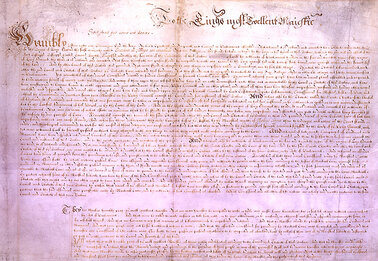
Following a series of disputes with Parliament over granting taxes, in 1627 Charles I imposed "forced loans", and imprisoned those who refused to pay, without trial. This was followed in 1628 by the use of martial law, forcing private citizens to feed, clothe and accommodate soldiers and sailors, which implied the king could deprive any individual of property, or freedom, without justification. It united opposition at all levels of society, particularly those elements the monarchy depended on for financial support, collecting taxes, administering justice etc, since wealth simply increased vulnerability.
A Commons committee prepared four 'Resolutions', declaring each of these illegal, while re-affirming Magna Carta and habeas corpus. Charles previously depended on the House of Lords for support against the Commons, but their willingness to work together forced him to accept the Petition. It marked a new stage in the constitutional crisis, since it became clear many in both Houses did not trust him, or his ministers, to interpret the law.
The Petition remains in force in the United Kingdom, and parts of the Commonwealth. It influenced elements of the Massachusetts Body of Liberties, and the Third, Fifth, Sixth and Seventh amendments to the Constitution of the United States.
 RSS Feed
RSS Feed